Related Research Articles
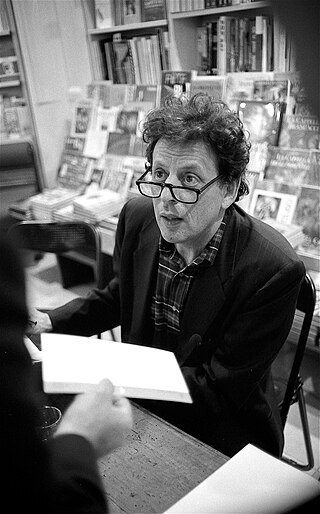
Philip Glass is an American composer and pianist. He is widely regarded as one of the most influential composers of the late 20th century. Glass's work has been associated with minimalism, being built up from repetitive phrases and shifting layers. Glass describes himself as a composer of "music with repetitive structures", which he has helped to evolve stylistically.
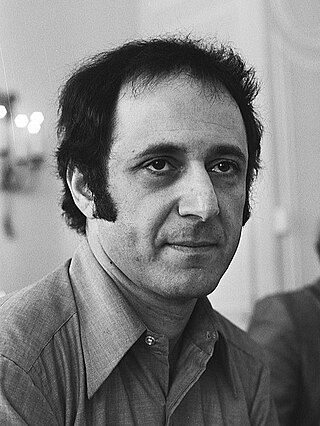
Stephen Michael Reich is an American composer who is known for his contribution to the development of minimal music in the mid to late 1960s. Reich's work is marked by its use of repetitive figures, slow harmonic rhythm, and canons. Reich describes this concept in his essay, "Music as a Gradual Process", by stating, "I am interested in perceptible processes. I want to be able to hear the process happening throughout the sounding music." For example, his early works experiment with phase shifting, in which one or more repeated phrases plays slower or faster than the others, causing it to go "out of phase." This creates new musical patterns in a perceptible flow.

A nocturne is a musical composition that is inspired by, or evocative of, the night.
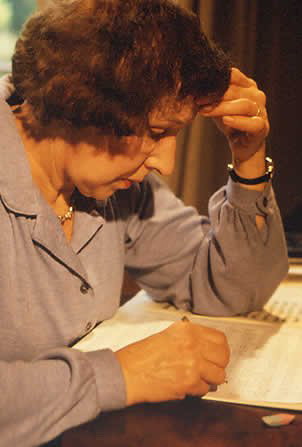
Rosemary Isabel Brown was an English composer, pianist and spirit medium who claimed that dead composers dictated new musical works to her. She created a small media sensation in the 1970s by presenting works purportedly dictated to her by Claude Debussy, Edvard Grieg, Franz Liszt, Franz Schubert, Frédéric Chopin, Igor Stravinsky, Johann Sebastian Bach, Johannes Brahms, Ludwig van Beethoven, Robert Schumann and Sergei Rachmaninoff.
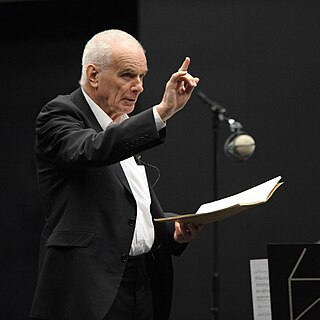
Sir Peter Maxwell Davies was an English composer and conductor, who in 2004 was made Master of the Queen's Music.

Franz Adolf Berwald was a Swedish Romantic composer and violinist. He made his living as an orthopedist and later as the manager of a saw mill and glass factory, and became more appreciated as a composer after his death than he had been in his lifetime.

Dave Douglas is an American jazz trumpeter, composer, and educator. His career includes more than fifty recordings as a leader and more than 500 published compositions. His ensembles include the Dave Douglas Quintet; Sound Prints, a quintet co-led with saxophonist Joe Lovano; Uplift, a sextet with bassist Bill Laswell; Present Joys with pianist Uri Caine and Andrew Cyrille; High Risk, an electronic ensemble with Shigeto, Jonathan Aaron, and Ian Chang; and Engage, a sextet with Jeff Parker, Tomeka Reid, Anna Webber, Nick Dunston, and Kate Gentile.
Earle Brown was an American composer who established his own formal and notational systems. Brown was the creator of "open form," a style of musical construction that has influenced many composers since—notably the downtown New York scene of the 1980s and generations of younger composers.

Carnaval, Op. 9, is a work by Robert Schumann for piano solo, written in 1834–1835 and subtitled Scènes mignonnes sur quatre notes. It consists of 21 short pieces representing masked revelers at Carnival, a festival before Lent. Schumann gives musical expression to himself, his friends and colleagues, and characters from improvised Italian comedy. He dedicated the work to the violinist Karol Lipiński.
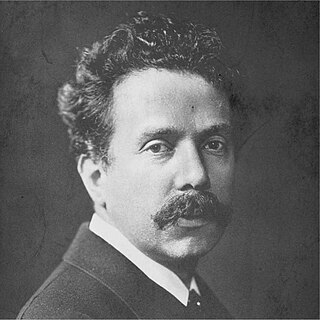
Robert Kahn was a German composer, pianist, and music teacher.

Alarm Will Sound is a 20-member chamber orchestra that focuses on recordings and performances of contemporary classical music. Its performances have been described as "equal parts exuberance, nonchalance, and virtuosity" by the Financial Times and as "a triumph of ensemble playing" by the San Francisco Chronicle. The New York Times said that Alarm Will Sound is "one of the most vital and original ensembles on the American music scene."
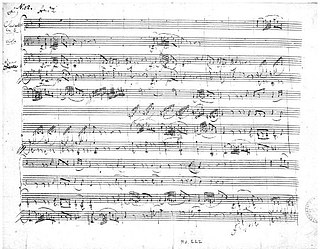
A clarinet–viola–piano trio, often titled "Trio for Clarinet, Viola and Piano" is a work of chamber music that is scored for clarinet, viola, and piano; or is the designation for a musical ensemble of a group of three musicians playing these instruments. This combination of instruments differs from other combinations, as the viola and the clarinet share approximately the same musical range, but not the same tone quality.

Matthew King is a British composer, pianist, and educator. His works include opera, piano and chamber music, and choral and orchestral pieces. He has been described by Judith Weir, Master of the Queen’s Music, as “one of Britain's most adventurous composers, utterly skilled, imaginative, and resourceful."
Richard Causton is an English composer and teacher.
The Melos Ensemble is a group of musicians who started in 1950 in London to play chamber music in mixed instrumentation of string instruments, wind instruments and others. Benjamin Britten composed the chamber music for his War Requiem for the Melos Ensemble and conducted the group in the first performance in Coventry.

Øyvind Torvund is a Norwegian composer.
Jefferson Friedman is an American composer. He lives in Los Angeles. He received an M.M. degree in music composition from The Juilliard School, where he studied with John Corigliano, and a B.A. from Columbia University, where he studied with David Rakowski and Jonathan Kramer. He also studied with George Tsontakis and Christopher Rouse.

The Piano Quartet in E♭ major, Op. 47, was composed by Robert Schumann in 1842 for piano, violin, viola and cello. Written during a productive period in which he produced several large-scale chamber music works, it has been described as the "creative double" of his Piano Quintet, finished weeks earlier. Though dedicated to the Russian cellist Mathieu Wielhorsky, it was written with Schumann's wife Clara in mind, who would be the pianist at the premiere on 8 December 1844 in Leipzig.

Kasia Glowicka, also known as Katarina Glowicka, is a Polish composer and lecturer of computer music at the Royal Conservatory of Brussels.
Bunte Blätter, Op. 99, is a collection of piano pieces by Robert Schumann assembled from earlier unpublished pieces after the success of the Album for the Young , Op. 68. Upon publication the pieces were issued both as a complete set and individual pieces, the latter in differently colored covers.